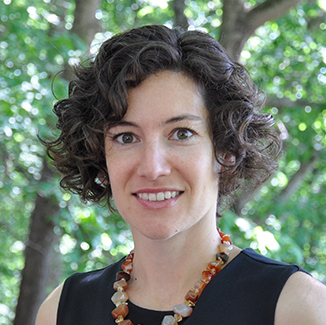About the North Carolina Center for Birth Defects Research and Prevention
 Each year in North Carolina over 4,000 infants are born with a major birth defect.
Each year in North Carolina over 4,000 infants are born with a major birth defect.
What factors contribute to having a birth defect? How can we help families that have been affected? Can we prevent some birth defects from happening?
To answer these questions, the NC Center brings together a highly interdisciplinary team of researchers with expertise in teratology and dysmorphology, developmental biology, maternal-fetal medicine, perinatal and pharmaco-epidemiology, biostatistics, genetics, environmental health science, and birth defects surveillance. The Center’s goal is to contribute impactful epidemiologic research on the etiology of birth defects, emphasizing potentially modifiable risk factors before and during pregnancy. Specifically, investigators at the NC Center use data from BD-STEPS and NBDPS to investigate risk factors for birth defects including medication use during pregnancy, maternal health and diet, and key social determinants of health such as individual- and neighborhood-level socioeconomic factors, acculturation, employment and workplace conditions, and various environmental exposures. We are also interested in understanding how genetics, epigenetics, and gene-exposure interactions influence the risk of birth defects.
Established in 2002, the NC Center is a collaboration between the Department of Epidemiology at the University of North Carolina (UNC) Gillings School of Global Public Health in Chapel Hill, and the Birth Defects Monitoring Program (BDMP) at the North Carolina Division of Public Health in Raleigh. In addition to producing high-impact research on the causes of birth defects, the NCCBDRP is committed to training the next generation of researchers and has trained over 35 doctoral and post-doctoral students in birth defects epidemiology. For more information, please visit: nccbdrp.unc.edu
Over 3,400 families in North Carolina participated in the National Birth Defects Prevention Study (www.nbdps.org), and hundreds of families have already participated in BD-STEPS since the study began in 2014. The NC Center recognizes and appreciates the tremendous contributions of families who give their time and stories to this important research, and we look forward to working together toward our collective goals of understanding the causes of birth defects, preventing future cases, and supporting children and young adults living with a birth defect.
Team

Dr. Andrew F. Olshan, PhD
Principal Investigator
Dr. Andrew F. Olshan is Distinguished Professor in the Department of Epidemiology at the UNC Gillings School of Global Public Health. He has an established research record covering genetic, occupational and environmental epidemiology focused specifically on reproduction, birth defects and cancer. As Co-Principal Investigator, Dr. Olshan co-directs the NC Center’s research agenda and oversees all staff and study-related activities.
It’s truly a privilege to help lead the efforts, nationally and in North Carolina, to uncover the causes of birth defects that will ultimately lead to targeted prevention. Our center includes very talented staff, students, and investigators that work synergistically to collect and analyze large volumes of complex data. Our collaborations with other centers have been especially beneficial. We are grateful to have such enthusiastic participation from North Carolina families.
Dr. Andrew F. Olshan

Dr. Tania A. Desrosiers, PhD, MPH
Principal Investigator
Dr. Desrosiers has over 15 years experience in birth defects epidemiology. She is particularly interested in identifying actionable risk factors for birth defects that can translate to prevention and/or reduction in childhood morbidity associated with birth defects, as well as increasing capacity for birth defects research by developing innovative data and biospecimen resources.
Dr. Desrosiers has been an investigator with the NCCBDRP since 2011 and co-Principal Investigator since 2018. As co-PI, Dr. Desrosiers co-directs the Center’s research agenda, oversees implementation of BD-STEPS in North Carolina, mentors junior scientists in birth defects research, and collaborates with the CDC and other BD-STEPS Centers on study-wide research and protocol development. Dr. Desrosiers is an Associate Professor in the Department of Epidemiology at the UNC Gillings School of Global Public Health, and a core faculty member of the Department’s program in Reproductive, Perinatal, and Pediatric Epidemiology.
The fact that the cause of most cases of birth defects remains unknown is a deep source of motivation to continue this important work. I am especially grateful to the families that contribute their time and personal stories to BD-STEPS. We honor them by doing our very best to produce innovative, interdisciplinary, high-impact research toward our shared goal of understanding why birth defects happen, so that we can prevent more cases in North Carolina and across the world.
Dr. Tania A. Desrosiers

Dr. Robert E. Meyer, PhD
Former Co-Principal Investigator
Dr. Meyer has over 20 years of experience in birth defects surveillance and research, and has published over 100 articles in birth defects epidemiology and maternal and child health. He served as co-Principal Investigator of the North Carolina Center from 2002 to 2018, and was Director of the Birth Defects Monitoring Program at the North Carolina Division of Public Health from 1997 to 2018. For his dedication to research in birth defects, he was honored by his peers with the National Birth Defects Prevention Network’s Godfrey P. Oakley Jr. Award in 2011. Dr. Meyer is currently an Adjunct Professor of Maternal and Child Health at UNC. He remains a critical member of the NC Center through active engagement in research collaborations and mentoring the next generation of birth defects researchers.
Notable Research Findings
The following are selected examples of important research publications led by the North Carolina Center.
Krajewski AK, Patel A, Gray CL, Messer LC, Keeler CY, Langlois PH, Reefhuis J, Gilboa SM, Werler MM, Shaw GM, Carmichael SM, Nembhard WN, Insaf TZ, Feldkamp ML, Conway KM, Lobdell DT, Desrosiers TA. Is gastroschisis associated with county-level socio-environmental quality during pregnancy? Birth Defects Research 2023 Sep 29; online ahead of print. PMID: 37772934.
Evenson KR, Mowla S, Olshan AF, Shaw GM, Aisles EC, Reefhuis R, Joshi N, Desrosiers TA. Maternal physical activity, sitting time, and risk of non-cardiac birth defects. Pediatric Research 2023 Aug 5; online ahead of print. PMID: 37543708.
Neo DT, Desrosiers TA, Martin CL, Carmichael SL, Calikoglu MG, Evans S, Feldkamp ML, Werler MM, Shaw GM, Shumate C, Nembhard WN, Insaf TA, Wisniewski KW, Olshan AF. Neighborhood-level socioeconomic position during early pregnancy and risk of gastroschisis. Epidemiology 2023 July; 34(4):576-588. PMID: 36976718
Zaganjor I, Luben TJ, Desrosiers TA, Keil AP, Engel LS, Michalski A, Carmichael SL, Nembhard SL, Shaw G, Reefhuis J, Yazdy MM, Langlois PH, Feldkamp ML, Romitti PA, Olshan AF. Maternal exposure to disinfection by-products and risk of hypospadias in the National Birth Defects Prevention Study (2000-2005). International Journal of Environmental Research and Public Health 2020 Dec; 17(24):9564. PMID: 33371304.
Stingone JA, Luben TJ, Sheridan SC, Langlois PH, Shaw GM, Reefhuis J, Romitti PA, Feldkamp ML, Nembhard WN, Browne ML, Lin S. Associations between fine particulate matter, extreme heat events and congenital heart defects. Environmental Epidemiology. 2019 Dec 11; 3(6):e071. PMID: 32091506.
Choi G, Stingone J, Desrosiers T, Olshan A, Nembhard W, Shaw G, Pruitt S, Romitti P, Yazdy M, Browne M, Langlois P, Botto L, Luben TJ. Maternal exposure to outdoor air pollution and congenital limb deficiencies in National Birth Defects Prevention Study. Environmental Research. 2019 Sep 10. PMID: 31546130.
Forestieri NE, Desrosiers TA, Freedman S, Aylsworth AS, Voltzke K, Olshan AF, Meyer RE. Risk factors for primary congenital glaucoma in the National Birth Defects Prevention Study. American Journal of Medical Genetics 2019 Sep; 179(9):1846-1856. PMID: 31313509.
Ryan MA, Olshan AF, Canfield MA, Hoyt AT, Scheurle AE, Carmichael SL, Shaw GM, Werler MM, Fisher SC, Desrosiers TA. Sociodemographic, health behavioral, and clinical risk factors for anotia/microtia in a population-based case-control study. International Journal of Pediatric Otorhinolaryngology 2019 Mar; 122:18-26. PMID: 30928866.
Desrosiers TA, Siega-Riz AM, Mosley BS, Meyer RE. Low carbohydrate diets may increase risk of neural tube defects. Birth Defects Research 2018; Jan 25; 110(11). PMID: 29368448.
Pace ND, Desrosiers TA, Carmichael SL, Shaw GM, Olshan AF, Siega-Riz AM. Antioxidant Consumption is Associated with Decreased Odds of Congenital Limb Deficiencies. Pediatric and Perinatal Epidemiology 2018 Jan; 32(1):90-99. PMID:28869773.
Contact
Project Director:
Diana Urlaub, MPH
North Carolina Center for Birth Defects Research and Prevention (NCCBDRP)
919-966-8301
